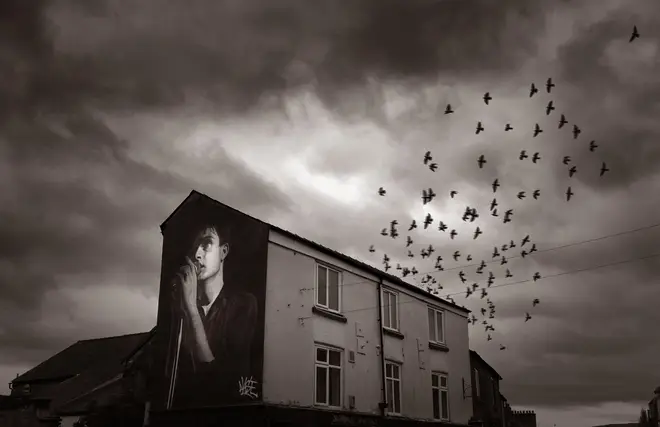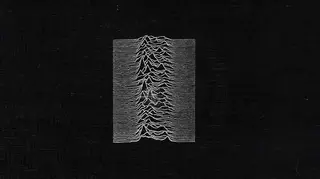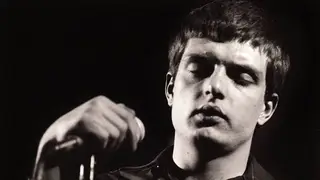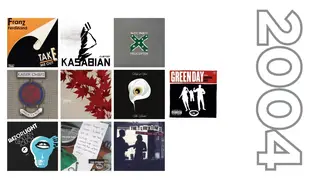Why Joy Division changed their name to New Order
18 May 2023, 08:00 | Updated: 4 January 2024, 13:22
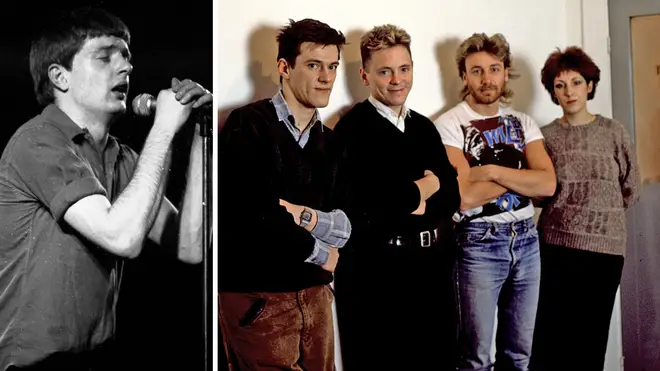
Listen to this article
15th to 21st May 2023 is Mental Health Awareness Week
Focusing on anxiety for this year's Mental Health Awareness Week will increase people's awareness and understanding of anxiety by providing information on the things that can help prevent it from becoming a problem. Find out more.
Get help with mental health here
The death of Ian Curtis on 18 May 1980 called time on the legendary group… but why did the other members of the band not continue to use the name Joy Division?
Joy Division were one of the greatest bands to come out of Manchester. Their recorded legacy amounts to two full-length albums - Unknown Pleasures and Closer - and a handful of singles and spare tracks, recorded between the summer of 1977 and the Spring of 1980.
However, the suicide of singer Ian Curtis cut the band’s journey brutally short - he died just before the release of the classic single Love Will Tear Us Apart, and when the album Closer was issued on 18 July 1980, Joy Division were officially history.

Joy Division - Love Will Tear Us Apart [OFFICIAL MUSIC VIDEO]
On 18 May 1980, just 24 hours before Joy Division were due to fly to New York for their first US tour, Ian Curtis took his own life at his home in Macclesfield, Cheshire. He’d suffered from depression for some time, having lived with severe epilepsy for over 18 months, and this, coupled with personal and relationship issues, had overwhelmed the 23-year-old musician.
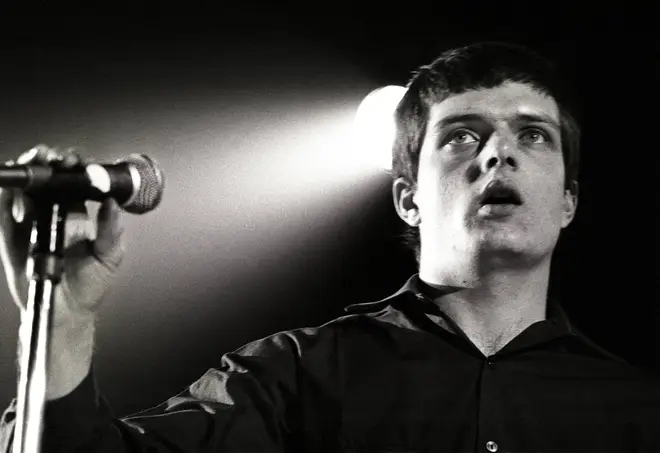
There was no question that the three remaining members - guitarist Bernard Sumner, bassist Peter Hook and drummer Stephen Morris - would carry on. They’d been poised to become the biggest cult band in the world, with audiences in Europe and the US anticipating more live dates, and the musicians simply didn’t know what else to do: as Morris later wrote in his autobiography, Record Play Pause: "There was never any suggestion of giving up and returning to the day job."
The reason Sumner, Hook and Morris didn’t carry on as Joy Division was out of respect to an agreement they’d had between them long before Curtis died. They’d pledged to quit performing under the Joy Division name and retire those songs if - for any reason - any member of the band left. It was a principled stand that the musicians observed when they lost Ian Curtis.

Peter Hook - Radio X Firsts
This meant that when the band reconvened after the funeral, they had to start from scratch. No singer, no songs - and no name.
The band had already been through a couple of name changes: for their first ever gig in May 1977, promoter Richard Boon suggested that the group call themselves Stiff Kittens, after an incident featuring some stillborn pet cats belonging to Pete Shelley of local heroes the Buzzcocks. They were billed as such, but when they turned up for the show, they announced that they were known as Warsaw, named after a track on David Bowie’s latest album Low:

David Bowie - Warszawa
Unfortunately, when Morris tried to book some London shows via a promoter at the end of 1977, he was told that the band’s name would be confused with the Ladbroke Grove-based act Warsaw Pakt, who had gained much publicity by recording and releasing an album all within one 24 hour period.
Warsaw changed their name to Joy Division in January 1978, taking the title from the term given to the wings of Nazi concentration camps in World War II. where prisoners were forced into sexual slavery. The name was taken from a graphic paperback novel written by a Holocaust survivor called House Of Dolls, but the decision would cause the Manchester band no end of controversy, from people who thought the musicians themselves had right wing sympathies.
The early punk scene had used the swastika as a way of shocking the older generation, but with the rise of the far right in the UK, it was not a good time to be playing with such potent symbols and there was an angry backlash. Joy Division, however, preferred to "let the music do the talking", but this lack of overt statement meant that the accusations continued to follow them around.
So when it came to choosing a new name, the surviving members decided they wouldn’t be caught out like that again - or so they thought.
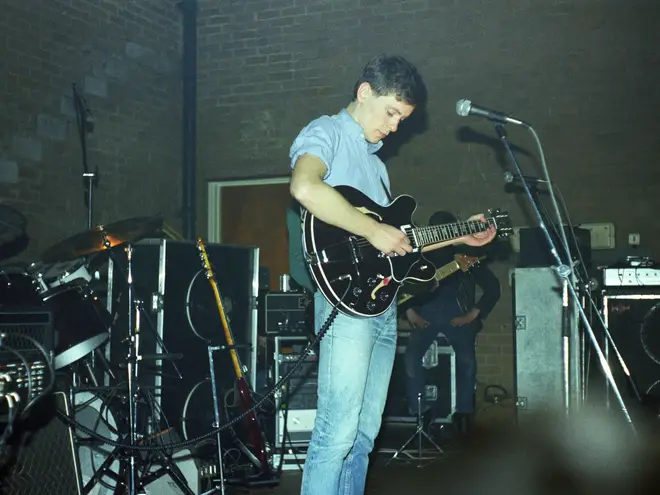
The band and manager Rob Gretton agonised over what to call the new outfit, even playing their first show as a trio on 29 July 1980 without any name at all.
According to Steve Morris, one suggestion was "The Sunshine Valley Dance Band", the name of an old school group of his. It would have been a wholly inappropriate and ironic title, given what had happened to their old singer.
Another stupid suggestion was “The Witch Doctors Of Zimbabwe”, but according to Peter Hook, he and Sumner threatened to quit if they were called that. Factory Records boss Tony Wilson liked the name “Stevie And The JDs”.
Rob Gretton had been making notes of potential names, which included vaguely political or ominous titles like “Black September” or “The Immortals”. As Morris recalled, he suggested the name “Khmer Rouge”, which was also the name of a genocidal communist party then terrorising Cambodia. He’d seen it in a newspaper and suggested: “That’s pretty neutral.”
The rest of the band begged to differ, saying: “F**king hell Rob, no it bloody isn’t.”

Gretton suggested another name from a newspaper headline: “The New Order Of The Kampuchean Front”. This was considered to be “still a bit political”, so was shortened to just “The New Order”, before the “The” was dropped.
“The New Order” was the name of a short-lived Los Angeles band, fronted by former Stooges guitarist Ron Asheton - as Ian Curtis was a huge Stooges and Iggy Pop fan, it was felt that the late singer would approve.
What the band failed to appreciate was that “New Order” was already a heavily loaded term - the phrase gets a few mentions in the book Mein Kampf by none other than Adolf Hitler, as a description of how his planned Holocaust was going to change the face of Germany ...and the world.
Even when the term was used by former Stooge Ron Asheton, it was inextricably linked with right wing rhetoric - the guitarist was obsessed with Nazi memorabilia and could be spotted wearing an SS officer's uniform at shows.
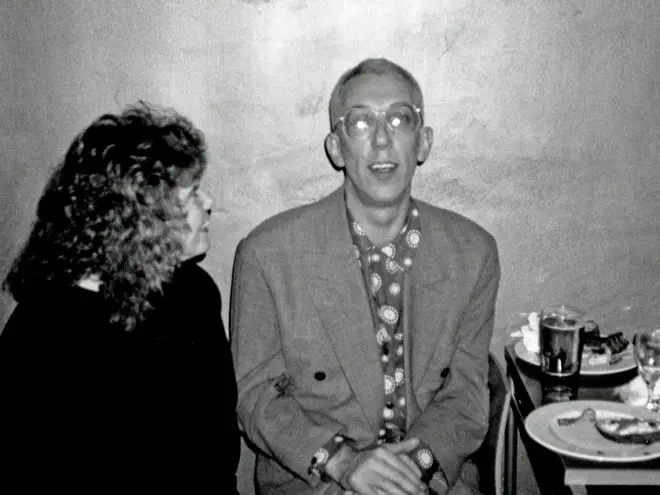
“Never at any point did any of us consider a certain Mr Hitler,” wrote Peter Hook in his autobiography Substance: Inside New Order. “Shows us how daft we were. We just thought it summed up our new start perfectly.”
Despite an immediate controversy over the decision in the music press, the name New Order has stuck with the band for nearly 40 years, across the albums Movement, Power Corruption And Lies and Technique and the huge hits Blue Monday, True Faith and Regret.

New Order - Love Will Tear Us Apart [Live in Glasgow]
While New Order refused to play any Joy Division material in their early years (apart from on a couple of special occasions), the 21st Century saw the group embrace their past, and they frequently perform the old JD songs Love Will Tear Us Apart and Transmission among others in their sets.
